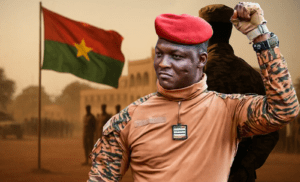Business, innovation and creative leadership across the African continent entered a dynamic new phase as over 300 global figures gathered in London for CNN’s inaugural Global Perspectives: On Africa summit. Far more than a networking event, the summit re-positioned Africa not merely as a recipient of investment and aid, but as a hub of agency, innovation and cultural influence. In so doing it raised profound questions about how business, governance and creativity must evolve to unlock the continent’s potential.
A shift in the narrative: from opportunity to agency
Historically, Africa has been framed as a region rich in resources but limited by infrastructure, governance and external dependency. At the summit, however, noted voices such as Dr. Ngozi Okonjo‑Iweala, Director-General of the World Trade Organization, argued the continent is entering an era of more authentic agency. She described the current era of trade disruption as “the greatest disruption in trade in 80 years” yet also called the turbulence “an opportunity to reform” the WTO’s decision-making procedures. The implication is clear: Africa is not simply a passive recipient of reform or external policy, but is moving towards a position where its voice matters in those institutions shaping global trade. This repositioning matters because it changes the power dynamic in inflows of capital, partnerships and commercial structures.
Economic diversification and creative capital as twin engines
One of the more concrete discussions at the summit centred on diversification of Africa’s economy away from extractive sectors. Dr Rania Al-Mashat stressed that moving “from potential to actually being able to talk about the performance of the continent … only happens if there are more policies adopted by countries from within the continent.” That internal agency connects directly with the creative industries. When celebrated author Chimamanda Ngozi Adichie stated “our storytelling needs to be more culturally confident. We have to assume that we are at the centre”, she was making a business point as much as a cultural one. Together, these remarks imply that Africa’s future lies in building value-chains which fuse natural resources, digital infrastructure, cultural production and regional markets, not just attracting foreign capital.
Creative leadership and global influence
The summit’s inclusion of actors, writers and cultural entrepreneurs signalled a broadening of the economic lens. For instance, Uzo Aduba spoke about how her art draws on her Nigerian heritage and how that authenticity powers creative work. By situating creativity alongside boardrooms and policy tables, the event exposed an often-underestimated reality: cultural exports, identities, narratives and local creative networks are central to Africa’s competitive edge. This matters for business leaders and investors because cultural infrastructure, from media to fashion to tech ecosystems, becomes part of the investment matrix, not just nice-to-have.
Implications for business, governance and investment
For business leaders, the summit implied that Africa’s greatest growth is yet ahead. As Sultan Ahmed bin Sulayem, chief executive of DP World, observed: “one port we have in Senegal does more business than all our ports in Europe combined” and “in 15 years the population will be two billion, they will surpass China, they will surpass India”. That suggests strategic infrastructure, logistics and digital ventures in Africa deserve re-evaluation. For policymakers, the message was equally clear: You cannot have development without peace, whether in the context of the Democratic Republic of the Congo, where Prime Minister Judith Suminwa Tuluka called for a cease-fire to enable positive evolution. For creatives, the summit affirmed that their stories, networks and platforms are critical foundations of national soft power and economic competitiveness.
A Final Note
The Global Perspectives event reshapes how Africa is positioned in global commerce, culture and governance. It signals a transition: from the continent being observed to becoming a strategic actor, from potential alone to performance, from narratives told by others to narratives authored from within. For innovators, investors and creators, the implication is that Africa is now a frontier of value creation, not only because of its resources or demographic trajectory, but because of its growing ownership of the levers of change.












